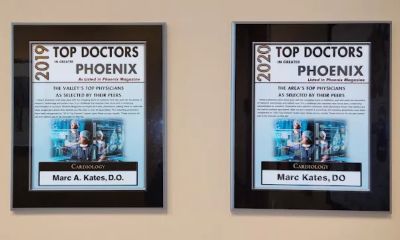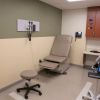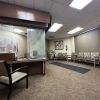How Cardiologists Manage Cardiac Arrest and Improve Patient Outcomes
- Understanding Cardiac Arrest
- The Role of Cardiologists in Cardiac Arrest Management
- Diagnosis and Immediate Treatment by Cardiologists
- Post-Arrest Care: What Cardiologists Do After the Event
- A Personal Story: The Importance of Cardiologists in Cardiac Arrest
Understanding Cardiac Arrest
Cardiac arrest is a life-threatening event where the heart suddenly stops beating, halting blood flow to vital organs, including the brain. It is often confused with a heart attack, but the two conditions are different. A heart attack occurs when a blockage prevents blood from flowing to the heart, while cardiac arrest happens due to electrical problems in the heart. Without immediate treatment, cardiac arrest can lead to death within minutes. This is where cardiologists step in, playing a crucial role in saving lives and ensuring the best possible recovery.

The Role of Cardiologists in Cardiac Arrest Management
When someone experiences cardiac arrest, prompt action is critical. Cardiologists are the specialists who manage heart health and treat heart conditions, including those leading to or following a cardiac arrest. Their role begins as soon as the emergency phase starts and continues through diagnosis, treatment, and long-term recovery.
Cardiac Solutions
cardiac solutions peoria
5651 W Talavi Blvd, Glendale, AZ 85306, USA

1. Emergency Response and Life-Saving Techniques
Cardiologists are often involved in managing patients who have suffered cardiac arrest. In emergency situations, they may use life-saving techniques like defibrillation, which delivers an electric shock to the heart to restore a normal rhythm. Cardiologists may also coordinate with emergency medical teams, ensuring the patient is rapidly stabilized and taken to a hospital with advanced cardiac care facilities.
2. Diagnostic Expertise
Once a patient is stabilized, cardiologists conduct various diagnostic tests to understand the root cause of the cardiac arrest. These tests may include ECGs (electrocardiograms), echocardiograms, or angiograms to examine heart function, blood flow, and any underlying heart conditions that could have led to the arrest. For me, it was this diagnostic expertise that was pivotal in understanding the condition of my heart and the risks involved. Cardiologists' ability to identify the problem early makes all the difference in treatment planning.
Diagnosis and Immediate Treatment by Cardiologists
After a cardiac arrest, cardiologists take a detailed approach to diagnosis and treatment. The immediate goal is to stabilize the patient and determine the cause of the event. Cardiologists evaluate heart function to prevent any further complications. They often recommend certain procedures such as coronary angioplasty, bypass surgery, or even implanting a defibrillator to regulate the heart’s rhythm and reduce the risk of another arrest.
1. Coronary Angioplasty and Stenting
If the arrest was caused by a blockage in the coronary arteries, cardiologists may perform a coronary angioplasty. This involves threading a catheter through the arteries to remove the blockage and, in many cases, placing a stent to keep the artery open. I’ve seen how this procedure can be life-saving, as it restores blood flow and helps prevent further heart damage.
2. Implantable Cardioverter Defibrillator (ICD)
For patients at risk of recurrent cardiac arrest, a cardiologist might recommend an implantable cardioverter defibrillator (ICD). This device monitors the heart’s rhythm and, if necessary, delivers a shock to restore normal heartbeats. My own experience with an ICD has been transformative. It gives me peace of mind knowing that my heart’s rhythm is continuously monitored, and I’m less worried about the risks of sudden cardiac arrest.
Post-Arrest Care: What Cardiologists Do After the Event
The work of cardiologists doesn’t stop after immediate treatment. They play a critical role in the recovery process following cardiac arrest. Post-arrest care includes monitoring the heart’s function, implementing rehabilitation strategies, and making recommendations for lifestyle changes to reduce the risk of future events.
1. Cardiac Rehabilitation Programs
Cardiac rehabilitation is a vital part of post-arrest recovery. Cardiologists guide patients through rehabilitation programs, which often involve exercise, education, and counseling to improve heart health. These programs help patients recover strength, improve cardiovascular health, and reduce anxiety about future cardiac events. Through rehab, I learned how to safely increase my physical activity and monitor my health more effectively, with my cardiologist offering critical insights every step of the way.
2. Medication Management
Following a cardiac arrest, many patients are prescribed medications to help manage their heart health. These may include blood thinners, beta-blockers, or statins to lower cholesterol. Cardiologists work closely with patients to monitor medication effectiveness and adjust dosages as needed to ensure the best possible outcome.
A Personal Story: The Importance of Cardiologists in Cardiac Arrest
I’ll never forget the day my father had a cardiac arrest. It was sudden, terrifying, and we weren’t sure if he would survive. The cardiologist who attended to him played an essential role in saving his life. The quick action in administering defibrillation, followed by carefully planned treatment and post-arrest care, meant that my dad was able to recover and return to his normal life. The cardiologist not only diagnosed the root causes of his heart condition but also guided us through every step of recovery, providing us with hope and clear advice. Thanks to the cardiologist’s expertise, my father is healthier today than before the incident.
How Cardiologists Help Prevent Future Cardiac Arrests
Beyond immediate treatment and post-arrest care, cardiologists are crucial in helping patients prevent future cardiac events. They assess risk factors, such as family history, lifestyle habits, and existing conditions like hypertension and diabetes. With personalized care, cardiologists design treatment plans that include lifestyle modifications, medications, and regular check-ups to keep the heart in optimal condition. In my case, my cardiologist recommended regular screenings and a heart-healthy diet that drastically reduced my risk of further complications.
Cardiologists offer the expertise and tools to manage cardiac arrest, providing life-saving treatment during emergencies, precise diagnosis, and a comprehensive post-arrest recovery plan. If you or a loved one is at risk of heart disease, it’s essential to consult with a skilled cardiologist who can help you navigate the complexities of managing cardiac arrest and improving heart health for the long term.





















Cardiac Solutions
cardiac solutions
5651 W Talavi Blvd, Glendale, AZ 85306, USA